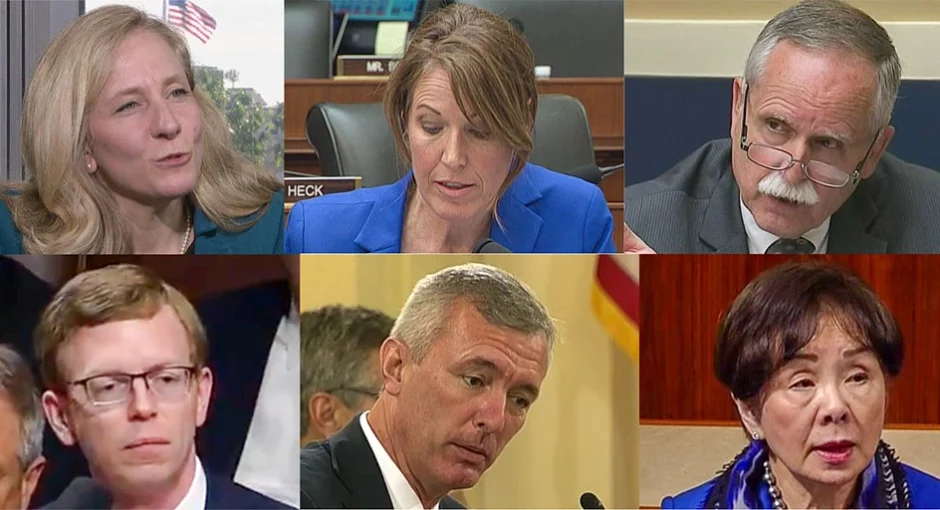Six U.S. House members—three Democrats and three Republicans—are urging fellow representatives to sign a letter asking U.S. Health and Human Services (HHS) Department leaders “to begin enforcement actions against pharmaceutical companies that refuse to honor 340B discounts on prescription drugs.”
Reps. Abigail D. Spanberger (D-Va.), Cindy Axne (D-Iowa), David McKinley (R-W.Va.), Doris Matsui (D-Calif.), John Katko (R-N.Y.), and Dusty Johnson (R-S.D.) recently sent a “dear colleague” email asking fellow representatives to join their appeal to HHS Secretary Xavier Becerra, HHS Inspector General Christi Grimm, and Health Resources and Services Administration Administrator Carole Johnson.
“We urge the Department of Health and Human Services (HHS) and its Office of the Inspector General (OIG) to use current statutory authority to impose civil monetary penalties against all drug manufacturers who have unlawfully overcharged safety net health care providers,” the proposed letter to Becerra, Grimm, and Johnson says. “Manufacturers have received multiple warnings that their overcharges are unlawful, but still refuse to comply. Further delay of enforcement actions emboldens more manufacturers to begin overcharging safety net providers, threatening the integrity of the entire 340B program.”
HRSA so far has referred seven of the 17 drug makers that impose conditions on 340B pricing when covered entities use contract pharmacies to the OIG for possible imposition of CMPs. The seven are AstraZeneca, Boehringer Ingelheim, Lilly, Novartis, Novo Nordisk, Sanofi, and United Therapeutics.
In a May 2 letter, Senate Finance Committee ranking Republican Chuck Grassley (Iowa) asked Grimm if OIG “plans to take enforcement action against these drug manufacturers.”
Grassley said in a news release about his letter, “I’ve heard from Iowa hospitals and pharmacists about how drug manufacturers have ended 340B program pricing at contract pharmacies and placed administrative burdens on health care providers. It’s important to understand what the inspector general is doing to take action following referrals by HRSA.”
Spanberger, Axne, McKinley, Matsui, Katko, and Johnson said their appeal to the HHS leaders is supported by the groups 340B Health, the National Association of Community Health Centers and America’s Essential Hospitals.
The six lawmakers co-wrote a Jan. 21 letter to Becerra urging HHS “to move quickly to enforce the law and begin assessing civil monetary penalties on manufacturers that have denied 340B pricing to providers.”
In March 2021, the lawmakers got a bipartisan group of 220 other House members to sign a letter to the then-acting HHS secretary seeking immediate action against Lilly, AstraZeneca, Sanofi, Novartis, Novo Nordisk, United Therapeutics—the first six manufacturers to impose conditions on 340B pricing when covered entities use contract pharmacies. Since then, 11 more manufacturers have adopted similar 340B policies—AbbVie, Amgen, Boehringer Ingelheim, Bristol Myers Squibb, Exelixis, GSK, Gilead, Johnson & Johnson, Merck, Pfizer, and UCB.
In November 2020, the group of six were behind a letter signed by 217 House members asking then HHS Secretary Alex Azar to stop drug companies from changing the 340B program from a drug discount to a drug rebate model.
Democrats Spanberger, Axne, Matsui and Republicans McKinley, Johnson, and Chris Stewart Utah) were the lead House sponsors of legislation to keep hospitals from losing eligibility for 340B discounts because of changes in patient and payer mix caused by the COVID-19 pandemic. President Biden signed the bill into law in March.


